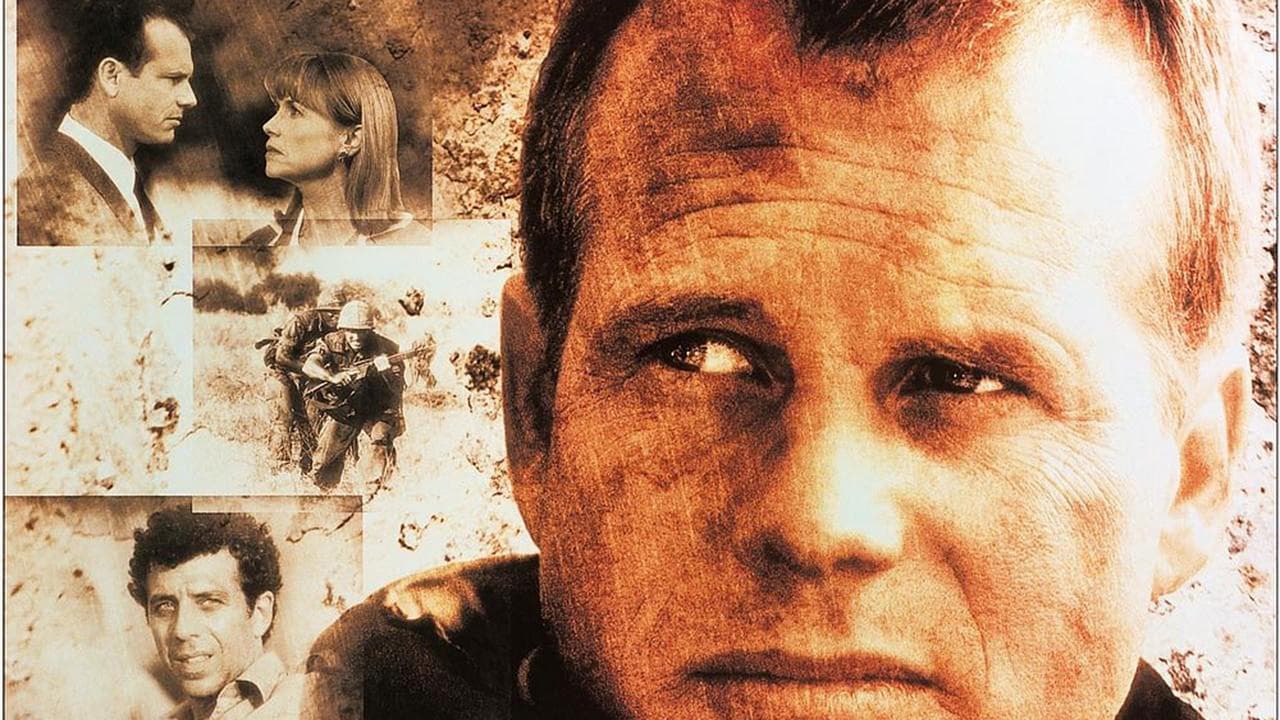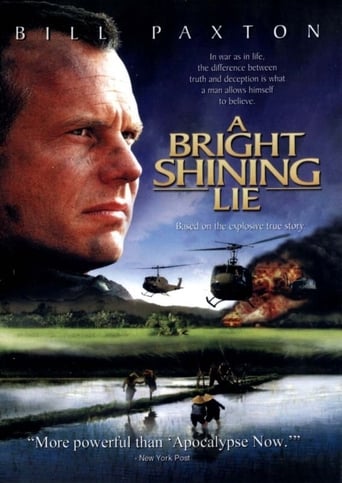

i really liked this movie. I never got into Bill Paxton too much, but this was as good as I've seen him act. The film seemed really authentic void of a few scenes and maybe even relationships. Donal Logue is pretty young and Im pretty sure this is one of his first films to have starred in. A lot of the characters are recognizable, be it from Clint eastwood Dirty Harry films to even Robocop. Eric Bogdosian pops up within the film surprisingly for a stint as a coworker soldier and even plain civilian I think. There's not much for me to say because I wasn't alive during this time, but the film basically goes from 1963 to 1969 during its duration.
... View MoreWho benefits from attempts to tarnish the US Military, Political leaders, American allies and America's need to BE involved in keeping the world safe from those who would destroy us. Could it be the idiot journalists that were there, who benefited, even though they never left the "parties" of Saigon except to visit secure areas? Journalist that provided the stories that the "media" wanted. Could it be the media that benefited, and if so, what was their motive? Could it be the same motive they have today which is to destroy the image of this country all over the world. Could it be the ringleaders of the Peace movements who were nothing more doped up morons who spent much of their time seducing underage girls, getting high and raving regarding things they knew nothing about. Could it be the educational "communities' which have long been a hot bed of radicals (read that those with communists leanings? There are a lot of foreign "professors" who have been planted in American universities, as well as American born morons, who constantly "preach" against America, against God, against family values, patriotism and all the things that made America what was once upon a time. All the above and all anti-American, anti-military, anti-freedom morons, benefit greatly from their attempts to destroy a country that allows EVEN the, most simple minded, inexperienced and do nothing scum of the earth to express the most uninformed opinions.I enjoyed the movie, because it had just enough fact to show that there was a war going on. However the Bright Shining Lie is the one told by the one who wrote the book, the ones who made the movie and those who seem so eager to make John Paul Vann look like a slime ball by presenting unproven and unwarranted "episodes" of his sexual activities and presenting him as an arrogant asshole. However if one were to check those who attended his funeral, among them were some of the war's most outspoken critics and they must have thought that John Paul Vann deserved a little respect. All things considered the movie is one continuous lie, tied together with disguised bits and pieces of factual information and combat footage. The simple minded will watch it, believe it and think that's the way it was. That's a shame!!
... View MoreThis movie may have low budget production values, but they did a fairly good job. Actual wartime footage is intermingled for good effect, especially in the opening sequence.I had a bit of a hard time taking Bill Paxton serious in this role at first, but I was pleasantly surprised to see that he did a very credible job portraying Lt. Col Vann with the required swagger.Though a bit over dramatic at times, and almost falling into cliché, I would have to recommend this movie. My only other criticism would be of the portrayal of the ARVN when under fire. The offices may have been beneath contempt, but when called to duty, the ARVN could mix it up with the best of them. They have been getting an unfair reputation for many years now.
... View MoreThis movie recounts the life and times of John Paul Vann, one of the movers and shakers of the US's non-military programs in the then South Vietnam. Although made in 1998, the movie has a very early to mid-1980s feel to it where production values are concerned and seems to be ignorant of and learned nothing from any movies and series made on the subject since (Tour Of Duty, Off Limits, 48 Charlie Mopic, even Hamburger Hill). The only really good effect was the artillery explosions when Vann apparently called in artillery on his own bunker.A much more interesting and exciting movie could have been made of another book on the non-purely military aspect of the Vietnam conflict (which was essentially economic and political in nature and solution) is Orrin DeForest's "Slow Burn", a book about the much neglected area of military and political intelligence. It has intrigue, suspense, intelligence, (real) romance and comradery that in this movie is only touched on.Anyway, because this movie is based on a book, it has a rather shallow feeling, because again (as usual) the director tries to put in too much, and doesn't connect the material and scenes in a way that is anything other than chronological. He should have picked the ones that could have blended together into a more interesting story.
... View More